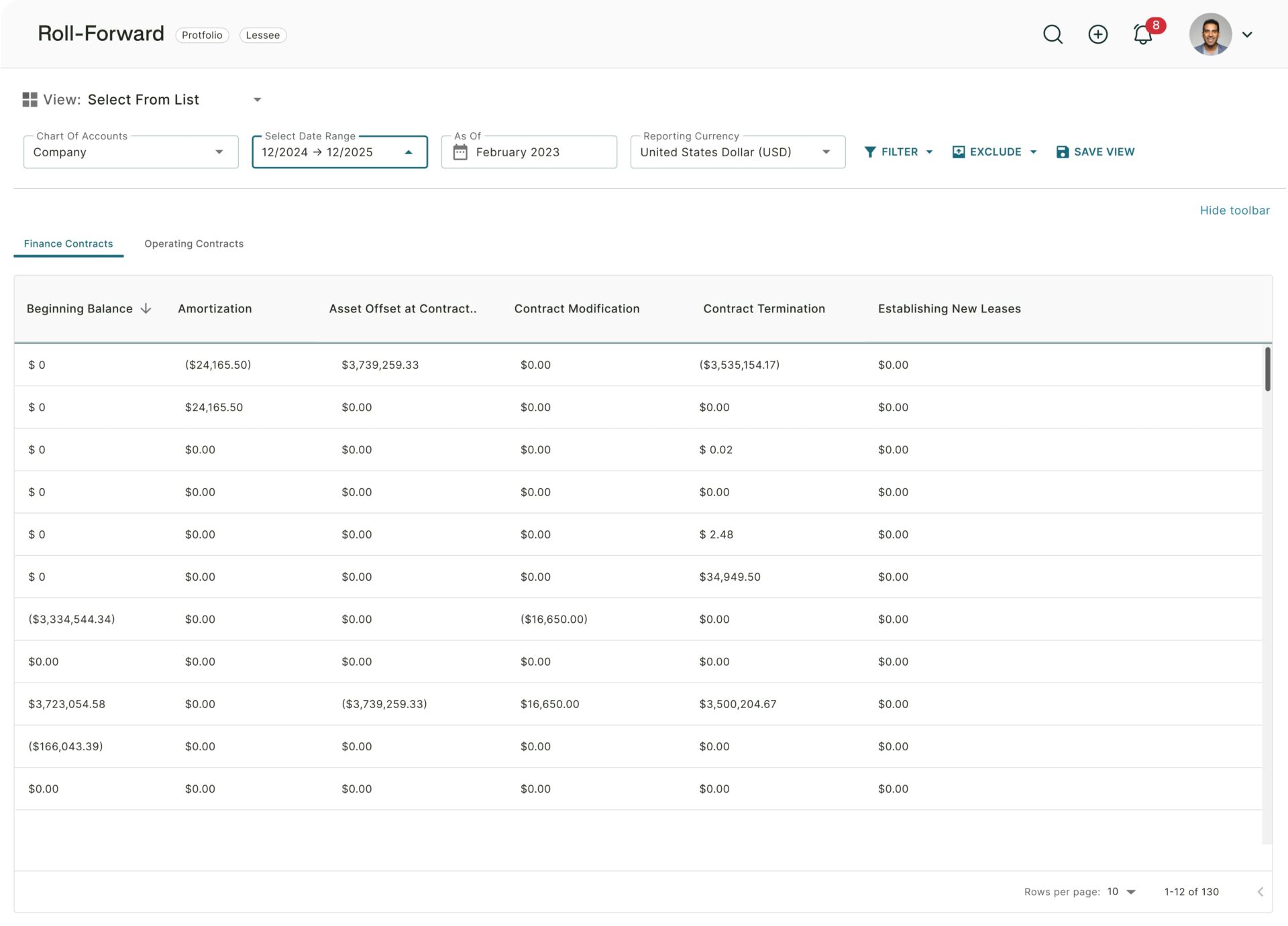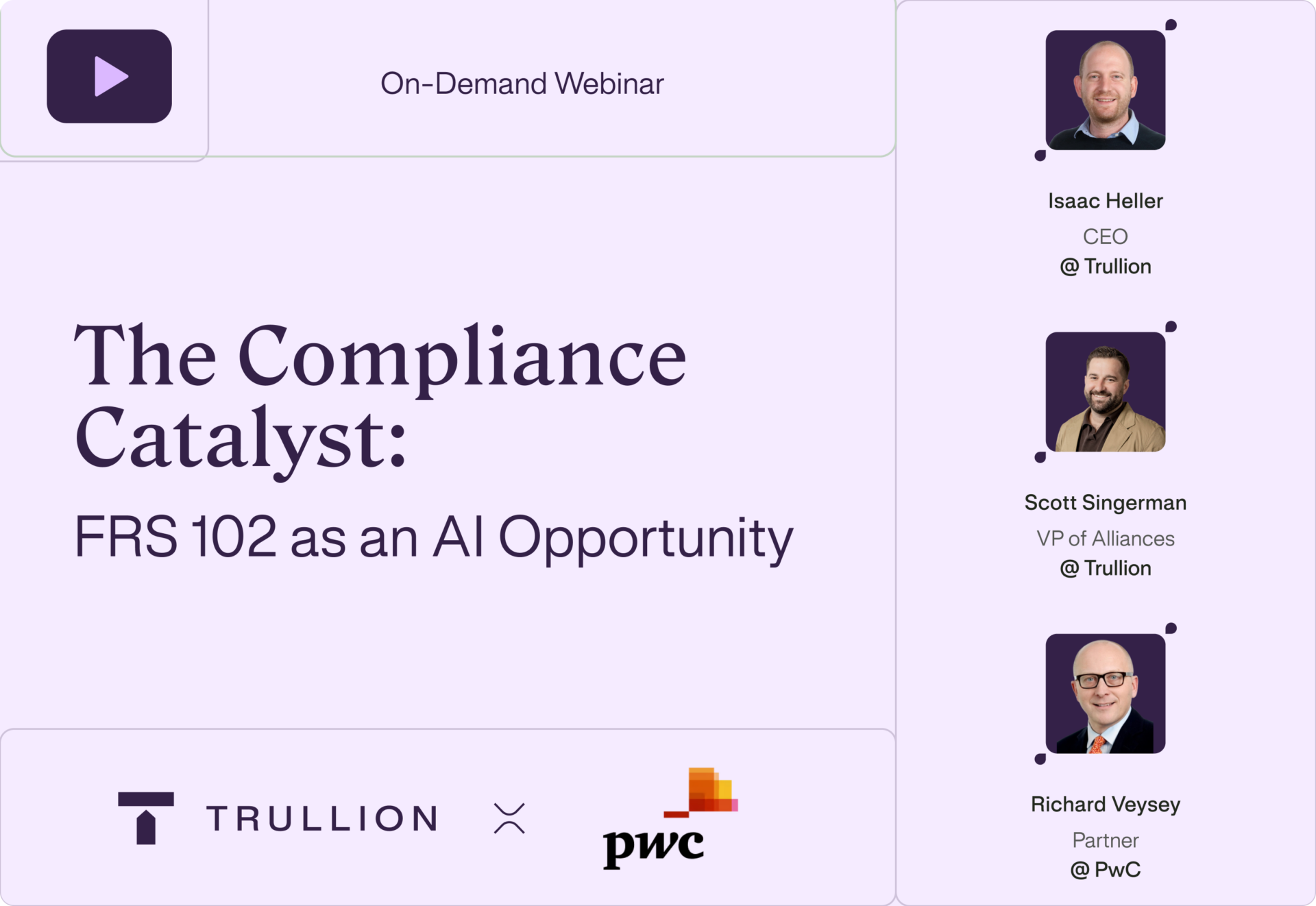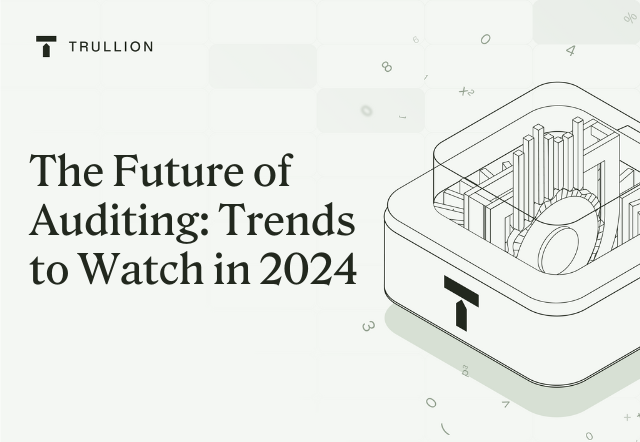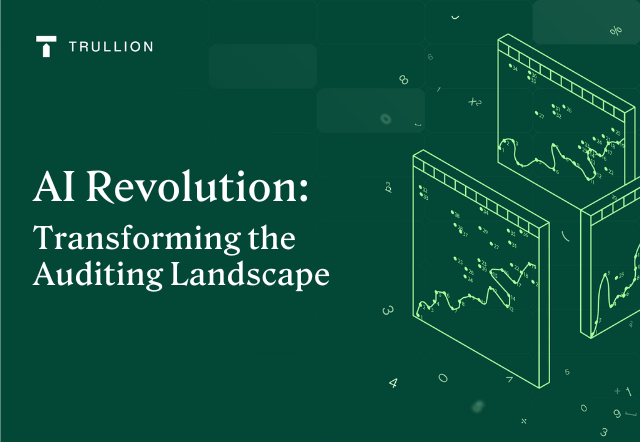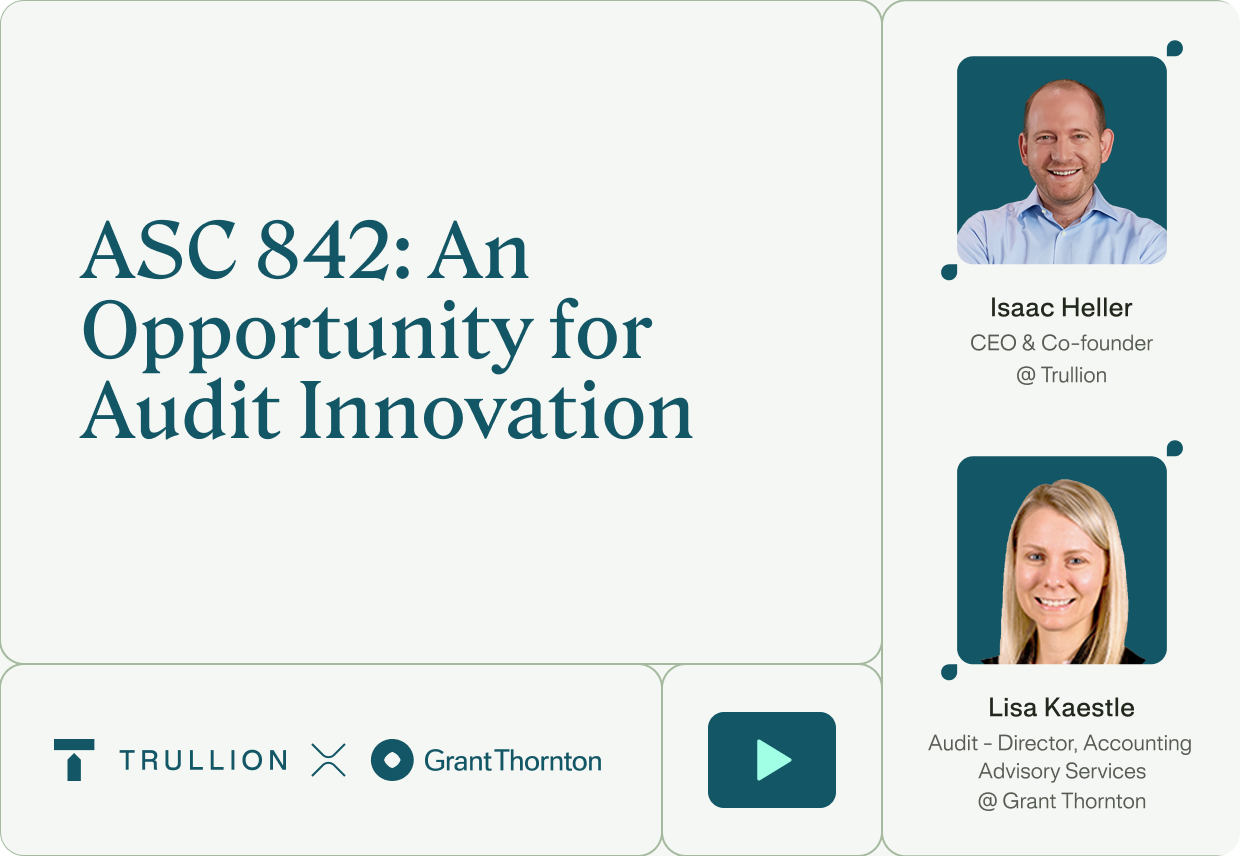Evolving Landscape of the Audit Industry
What are the current trends that will shape auditing in 2024 and beyond? The profession itself has been buffeted by turbulent winds over the past few years. These include external auditing scandals like Wirecard and FTX where billions of dollars went unaccounted for, to internal challenges such as the breakup and then non-breakup of EY.
Challenges ahead are likely to include the need for auditors to develop new skills, become proficient in the latest technologies, and adapt to the increasing complexity of business and regulatory environments. As an industry, Audit must use all the tools in its arsenal to ensure it continues to hold the public’s trust.
There have been numerous bright spots too: emerging technologies have shown incredible results when applied to auditing. AI and machine learning for example have made audits quicker, more effective, and ultimately added more value for clients while attracting exciting talent to the industry.
Looking ahead, these challenges and opportunities are the macro forces shaping the future of auditing. What follows are our top 8 key trends to watch out for in 2024.
Key Auditing Trends in 2024
Here is our list of the top 8 current trends in auditing:
1. Artificial Intelligence (AI) and Machine Learning
While technologies such as Large Language Models (LLMs) have transformed processes across numerous industries, it’s the next stage of these technologies’ development, including fine-tuned LLMs trained on specific industry data, where a transformative difference is likely to be felt.
2. Robotic Process Automation (RPA)
RPA is automating routine tasks such as data entry, enabling auditors to focus on more complex issues. This automation not only enhances efficiency and accuracy but also liberates auditors from mundane tasks, allowing them to focus on more strategic and high-value activities such as analysis, interpretation, and advisory roles.
The implementation of RPA in auditing can lead to a more dynamic and stimulating work environment, attracting bright talent to the profession. As auditors engage more in complex problem-solving and strategic decision-making, the profession becomes more appealing to individuals seeking intellectually rewarding careers. This shift towards higher-level tasks will also increase the overall value and impact of audit services.
3. Blockchain Technology
Blockchain is set to revolutionize the audit process with its transparent and decentralized ledger system.
For example, in a blockchain-based system where every transaction is recorded in a way that cannot be altered or deleted, there is now a transparent and tamper-proof record of all financial transactions. Auditors can use this feature to verify the accuracy and integrity of financial statements more efficiently and effectively.
The decentralized nature of blockchain also means that the data is not controlled by any single entity, which enhances the reliability of the information. This application of blockchain can significantly streamline the audit process, reduce the risk of fraud, and critically improve overall trust in financial reporting.
4. Data Analytics
Advanced data analytics, including predictive analytics, play a crucial role in auditing. Auditors can use these tools to assess risks, identify material misstatements, and uncover insights from both structured and unstructured data. By leveraging this information, auditors can be more strategic in terms of where focus areas should be for each client, while constantly adding value to clients and other stakeholders.
5. Environmental, Social, and Governance (ESG) Audits
ESG audits are increasingly important as stakeholders demand transparency in sustainable and responsible business practices. Auditors are evaluating companies’ environmental impact, social responsibility initiatives, and governance structures.
With much controversy swirling around ESG in general, a trusted third-party is crucial to build a system that can be trusted by all stakeholders. Auditors are perfectly placed to fulfill this role.
6. Cybersecurity Audits
Cybersecurity threats have emerged as among the most urgent risks to companies today. Auditors must assess network security access controls, and prepare for cyber threats through methods like penetration testing and vulnerability assessments.
This represents a significant departure from “traditional” auditing and is likely to grow increasingly important as technology evolves.
7. Remote Auditing
The pandemic has accelerated the adoption of remote auditing. Auditors now use virtual tools for audits, allowing them to overcome geographical barriers and conduct audits more efficiently.
While physical audits aren’t likely to disappear anytime soon – and certainly physical checks in key audit areas such as Inventory cannot be substituted – the world has discovered that more can be achieved remotely than we thought possible.
This is also likely to have an impact on talent within the industry; now the best auditors can be sourced from anywhere in the world.
8. Quality and Ethics
Audit Quality and Ethics as a trend in 2024 reflects the increasing emphasis on maintaining high standards in auditing practices and winning the public’s trust when it comes to the integrity and efficacy of the profession. This is likely to be felt in a number of ways.
First, regulatory bodies are poised to introduce updated standards and guidelines aimed at enhancing the quality and reliability of audits. This move is a response to the growing complexity of business environments and the need for more rigorous financial scrutiny.
Simultaneously, there’s a growing emphasis on fostering a culture of ethical conduct within auditing firms. These firms are increasingly investing in building an organizational culture that prioritizes ethical behavior and professional integrity. This effort includes strict adherence to codes of ethics and regular training on ethical issues and dilemmas specific to the auditing profession, ensuring that auditors are well-equipped to handle ethical challenges.
Another key development is the increased use of technology for quality control in auditing. Advanced technologies like artificial intelligence (AI) and data analytics are being leveraged for internal quality control checks. This technological integration aids in identifying potential errors or inconsistencies in audits, thereby improving their overall quality and accuracy.
Lastly, greater transparency and stakeholder engagement are becoming more prevalent in the audit process. There’s a noticeable trend towards more transparent communication with stakeholders about audit processes and findings. This approach includes openly discussing any challenges or limitations faced during the audit, which helps in building trust and ensuring that stakeholders have a clear understanding of the audit’s outcomes and the firm’s commitment to transparency and accountability.
Preparing for 2024 Audit Trends
Given these current trends in auditing, how can audit leaders better prepare their organizations and teams?
- Embrace technology: Auditors should become proficient in technologies like AI, machine learning, blockchain, and data analytics. Understanding and leveraging these tools are crucial for staying competitive and efficient. For specific engagements, auditors should make use of automated AI-powered audit software to harness the latest technologies in their audits.
- Encourage continuous learning: Engaging in continuous professional development to stay updated with the latest auditing standards, regulations, and technologies is essential.
- Specialization in new areas: As the scope of auditing expands, auditors may need to specialize in areas like ESG, cybersecurity, and predictive analytics.
Audit in 2024 and Beyond
In conclusion, the auditing landscape in 2024 is likely to be marked by significant technological advancements and a broadening scope of services, with a focus on retaining the public’s trust in the industry.
Auditors need to embrace new technologies, engage in continuous learning, and adapt to changes in audit methodologies and practices. By doing so, they can effectively meet the evolving demands of the industry and maintain the integrity and reliability of this great profession.
To learn more about integrating the latest technologies into your audit engagements, reach out to the Trullion team. Trullion enables you to enhance your audits with AI, perform quicker, more effective and more streamlined audits for all of your clients on one platform, collaborate with stakeholders in real-time, simplify requests for data – and get the numbers right every time.


